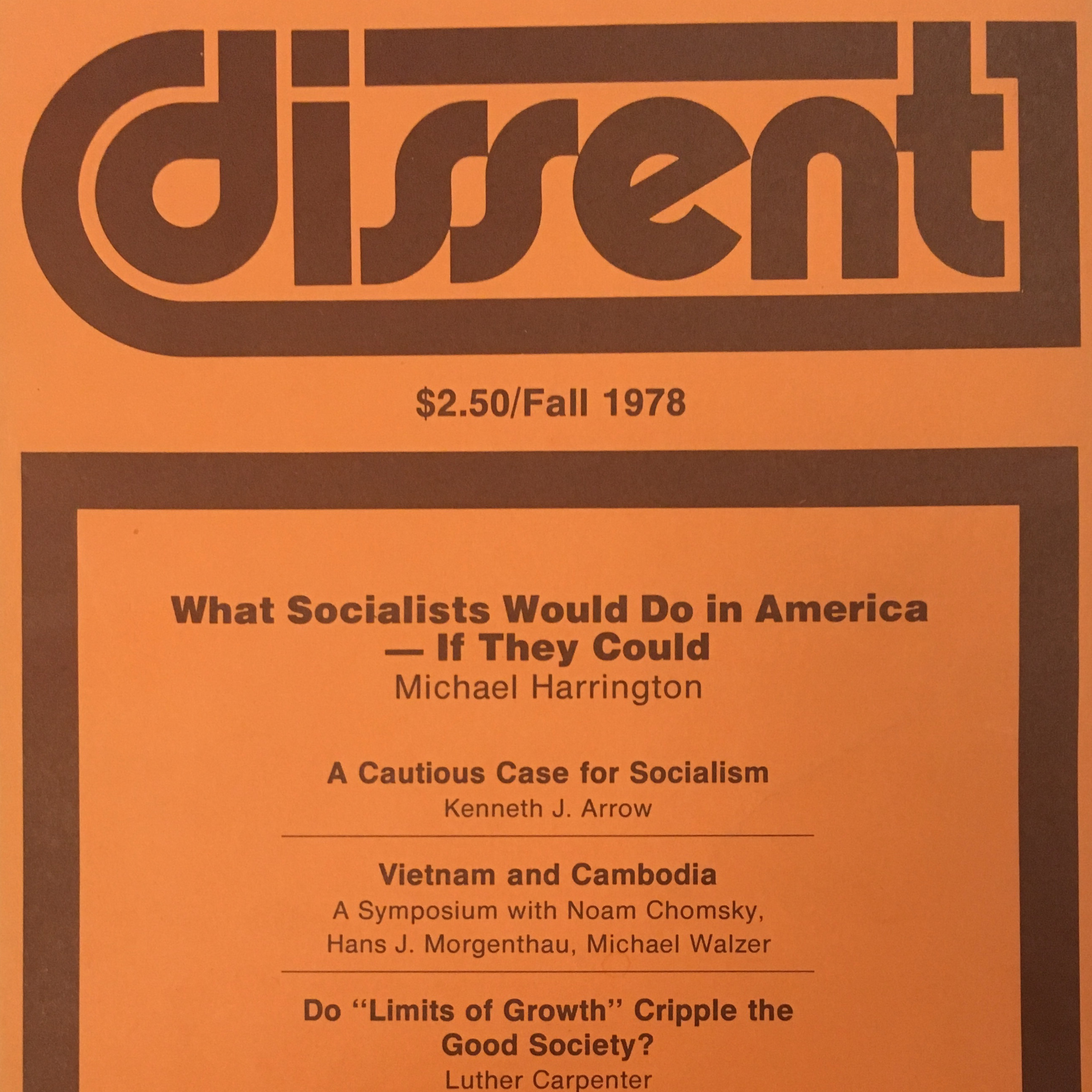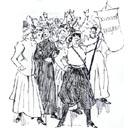The Moon: Enough is Enough 
So we have left footprints on the face of the moon. An admirable feat. We can congratulate ourselves, we can be proud, we have shown that it can be done. Most likely, it had to be done even though the …


So we have left footprints on the face of the moon. An admirable feat. We can congratulate ourselves, we can be proud, we have shown that it can be done. Most likely, it had to be done even though the …

This article first appeared in our Summer 1961 issue. We are republishing it following the New York state legislature’s recent approval of a congestion pricing plan for New York City.

“Capitalism is dying,” wrote Michael Harrington forty years ago. “It will not, however, disappear on a given day, or in a given month or even year. Its demise will take place as a historic process that could lead to democratic socialism—or to a new kind of collectivist and authoritarian society.”

Debates between socialists and liberals are not new. But nor, perhaps, are they completely irreconcilable. [From the archives]

Not so long ago, the social contract between workers, government, and employers made college a calculable bet. We built a university system for the way we worked. What happens to college when that social contract is broken—when we work not just differently but for less? And what if the crisis in higher education is related to the broader failures that have left so many workers struggling?

What started as a philosophy promulgated by black elites to “uplift the race” by correcting the “bad” traits of the black poor has evolved into one of the hallmarks of black politics in the age of Obama. In an era marked by rising inequality and declining economic mobility for most Americans—but particularly for black Americans—the politics of respectability works to accommodate neoliberalism.

As infamous pick-up artist Roosh himself admits in “Don’t Bang Denmark,” Nordic social democracy doesn’t support his kind.

For Zadie Smith, the time had come for the radicalism of experiment and the realism of political economy—for a new social realism that was capable of capturing both the mechanics and experience of today’s growing inequality.
The Port Huron Statement of Students for a Democratic Society is the most ambitious, the most specific, and the most eloquent manifesto in the history of the American Left.

Marriage is both ubiquitous and central. All across our country, in every region, every social class, every race and ethnicity, every religion or non-religion, people get married. For many if not most people, moreover, marriage is not a trivial matter. …
As the election media wars heat up, both Democrats and Republicans are looking for an edge, whether it means finding an ad that will appeal to swing voters like the “NASCAR dads” or figuring out how to get more of …
Every work of history, according to Howard Zinn, is a political document. He titled his thick survey A People’s History so that no potential reader would wonder about his own point of view: “With all its limitations, it is a history …

When Erica Jong’s hymn to Hillary Rodham Clinton appeared in the Nation last November, it was only the latest in a series of feminist tributes to the First Lady. In a March 1993 double salute to Mrs. Clinton and the …

Dissent has recently acquired a fax machine—not, to be sure, the very latest model, the cast-off of one of our editors who is “upgrading,” but a new machine for us nonetheless. Will this make us more efficient? Maybe so, and …

I had forgotten the incident completely, until I read Trey Ellis’s essay, “Remember My Name,” in a recent issue of the Village Voice (June 13, 1989). But there, in the middle of an extended italicized list of the by-names of …